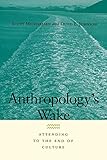Anthropology's Wake : Attending to the End of Culture / David E. Johnson, Scott Michaelsen.
Material type: TextPublisher: New York, NY : Fordham University Press, [2022]Copyright date: ©2008Description: 1 online resource (224 p.)Content type:
TextPublisher: New York, NY : Fordham University Press, [2022]Copyright date: ©2008Description: 1 online resource (224 p.)Content type: - 9780823228782
- 9780823290888
- online - DeGruyter
| Item type | Current library | Call number | URL | Status | Notes | Barcode | |
|---|---|---|---|---|---|---|---|
 eBook
eBook
|
Biblioteca "Angelicum" Pont. Univ. S.Tommaso d'Aquino Nuvola online | online - DeGruyter (Browse shelf(Opens below)) | Online access | Not for loan (Accesso limitato) | Accesso per gli utenti autorizzati / Access for authorized users | (dgr)9780823290888 |
Browsing Biblioteca "Angelicum" Pont. Univ. S.Tommaso d'Aquino shelves, Shelving location: Nuvola online Close shelf browser (Hides shelf browser)

|

|

|

|

|

|

|
||
| online - DeGruyter An American Heroine in the French Resistance : The Diary and Memoir of Virginia D'Albert-Lake / | online - DeGruyter Ancient Mediterranean Art : The William D. and Jane Walsh Collection at Fordham University / | online - DeGruyter Answering Auschwitz : Primo Levi's Science and Humanism after the Fall / | online - DeGruyter Anthropology's Wake : Attending to the End of Culture / | online - DeGruyter Apophatic Bodies : Negative Theology, Incarnation, and Relationality / | online - DeGruyter Apparitions—Of Derrida's Other / | online - DeGruyter Army GI, Pacifist CO : The World War II Letters of Frank Dietrich and Albert Dietrich / |
Frontmatter -- Contents -- Preface -- Acknowledgments -- Introduction: Anthropology’s Wake -- Chapter 1 Descartes’ Corps -- Chapter 2 Our Sentiments -- Chapter 3 Ex-Cited Dialogue -- Chapter 4 An Other Voice -- Chapter 5 ‘‘Unworkable Monstrosities’’ -- Chapter 6 Hybrid Bound -- Coda. Anthropology’s Present -- Notes -- Bibliography -- Index
restricted access online access with authorization star
http://purl.org/coar/access_right/c_16ec
Posing a powerful challenge to dominant trends in cultural analysis, this book covers the whole history of the concept of culture, providing the broadest study of this notion to date. Johnson and Michaelsen examine the principal methodological strategies or metaphors of anthropology in the past two decades (embodied in works by Edward Said, James Clifford, George Marcus, V. Y. Mudimbe, and others) and argues that they do not manage to escape anthropology’s grounding in representational practices. To the extent that it remains a practice of representation, anthropology, however complex, critical, or self-reflexive, cannot avoid objectifying its others. Extending beyond a critique of anthropology, the book reads the twinned notions of the human and culture across the long history of the human sciences broadly conceived, including anthropology, cultural studies, history, literature, and philosophy. Although there is no chance, they argue, for a “new” anthropology that would not repeat the old anthropology’s problem of disciplining the other, they also recognize that there may be no way out of anthropology. We are always writing, thinking, and living in anthropology’s wake, within its specific compass or horizon. Moreover, they demonstrate, we have been doing so for a very long time, since at least the beginning of the institution of philosophy in Plato and Aristotle.
Mode of access: Internet via World Wide Web.
In English.
Description based on online resource; title from PDF title page (publisher's Web site, viewed 03. Jan 2023)


